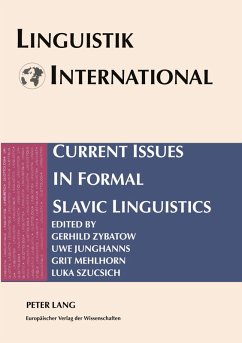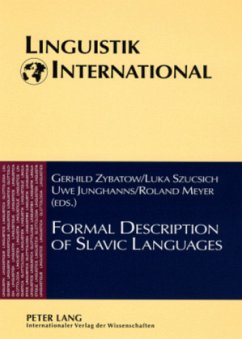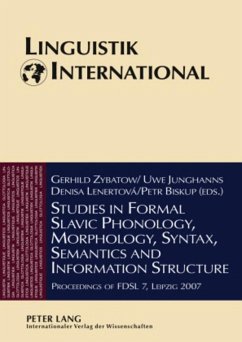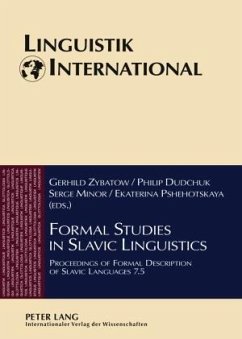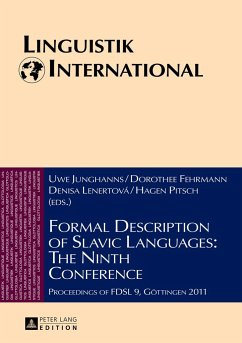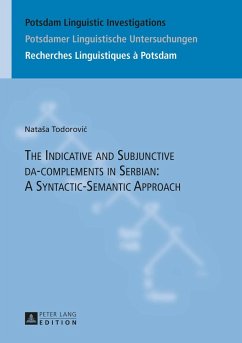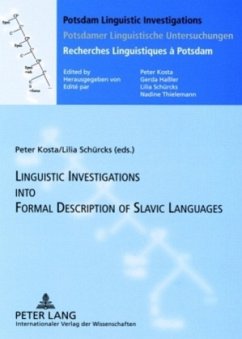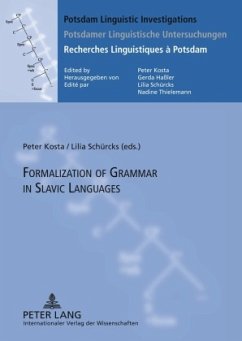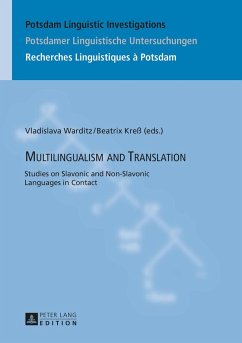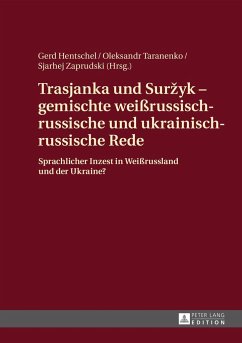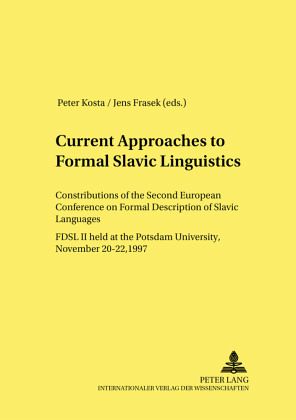
Current Approaches to Formal Slavic Linguistics
Contributions of the Second European Conference on Formal Description of Slavic Languages (FDSL II) held at Potsdam University, November 20-22, 1997
Herausgegeben: Zybatow, Lew; Kosta, Peter; Frasek, Jens
Versandkostenfrei!
Versandfertig in 6-10 Tagen
122,50 €
inkl. MwSt.

PAYBACK Punkte
0 °P sammeln!
Formal Slavic Linguistics is concerned with explicit descriptions of structure and meaning of Slavic languages within a certain theoretical framework of Principles and Parameters that attempts to situate linguistic theory in the broader cognitive sciences. Many approaches in the present volume reflect this development in a rather significant way. But the book also illustrates the diversity of approaches we use in attempting to reflect the entire range of subfields within a given theoretical framework of cognitive science. Thus, the authors investigate all linguistic levels and interfaces of a ...
Formal Slavic Linguistics is concerned with explicit descriptions of structure and meaning of Slavic languages within a certain theoretical framework of Principles and Parameters that attempts to situate linguistic theory in the broader cognitive sciences. Many approaches in the present volume reflect this development in a rather significant way. But the book also illustrates the diversity of approaches we use in attempting to reflect the entire range of subfields within a given theoretical framework of cognitive science. Thus, the authors investigate all linguistic levels and interfaces of a large array of Slavic languages, based on current formal models in linguistics (such as Minimalist Program, Generalized Phrase Structure Grammar (GPSG), Head Driven Phrase Structure Grammar (HPSG), Lexical Functional Grammar (LFG), The Prague Generative Functional Grammar and Formal Semantics of different origins).



